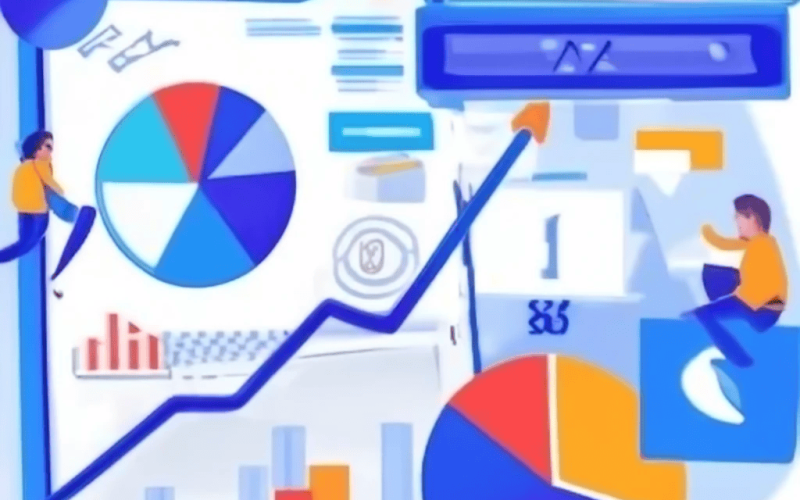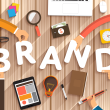Introduction
In the world of e-commerce and digital marketing, performance marketing has emerged as a powerful strategy for driving sales and maximizing ROI. However, when it comes to high-ticket products—items priced over $1,000—the approach requires a distinct set of strategies and considerations. This blog post will explore the unique challenges and effective tactics for performance marketing in the high-ticket space.
Understanding High-Ticket Products
Definition of High-Ticket Products
High-ticket products are typically defined as items or services that carry a significant price tag, often exceeding $1,000. These can include luxury goods, specialized equipment, high-end electronics, and premium services such as coaching or consulting.
Customer Behavior
Customers purchasing high-ticket items tend to engage in extensive research and comparison before making a decision. They are often looking for quality, value, and assurance that their investment is worthwhile.
The Unique Challenges of Marketing High-Ticket Products
1. Building Trust and Credibility
-
Establishing Authority: High-ticket customers need to feel confident in their purchase. Establishing authority through expert content, testimonials, and case studies can help build trust.
-
Transparent Communication: Open and honest communication about product features, pricing, and potential drawbacks fosters credibility.
2. Longer Sales Cycles
High-ticket items often involve longer decision-making processes. Customers may take weeks or even months to finalize their purchase, requiring marketers to maintain engagement over an extended period.
3. Higher Customer Expectations
Customers investing in high-ticket products expect a premium experience. This includes personalized service, high-quality content, and responsive customer support.
Effective Strategies for Performance Marketing
1. Targeted Marketing
-
Data-Driven Targeting: Utilize analytics to identify and reach your ideal audience. Focus on demographics, interests, and behaviors that align with high-ticket purchases.
-
Segmentation: Segment your audience based on their stage in the buying journey to tailor your messaging effectively.
2. Compelling Content Creation
-
Educational Content: Create in-depth guides, webinars, and videos that educate potential customers about the product’s benefits and features.
-
Testimonials and Case Studies: Showcase success stories and customer testimonials to build credibility and demonstrate value.
3. Personalization
-
Tailored Messaging: Use customer data to personalize your marketing messages, making them more relevant and engaging.
-
Follow-Up Communication: Implement personalized follow-up strategies to nurture leads and maintain engagement throughout the sales cycle.
4. Multi-Channel Approach
-
Social Media: Leverage platforms like Instagram, Facebook, and LinkedIn to showcase high-ticket products through visually appealing content and targeted ads.
-
Email Marketing: Use email campaigns to provide valuable content, product updates, and personalized offers to your audience.
-
Paid Advertising: Invest in PPC campaigns that target high-intent keywords related to your high-ticket products.
5. Measuring Success
-
Key Performance Indicators (KPIs): Track metrics such as conversion rates, customer acquisition costs, and return on ad spend to evaluate the effectiveness of your campaigns.
-
A/B Testing: Continuously test different strategies, messaging, and channels to optimize performance and improve results.
Conclusion
Performance marketing for high-ticket products is indeed a different game. It requires a strategic focus on building trust, understanding customer behavior, and implementing targeted, personalized marketing strategies. By recognizing the unique challenges and employing effective tactics, marketers can successfully navigate the complexities of selling high-value items and drive significant results.
To further equip yourself with the knowledge and skills needed for success in this specialized area, consider enrolling in a Advanced Performance Marketing Course. This course will provide you with in-depth insights into advanced marketing strategies, data analytics, customer segmentation, and effective content creation tailored for high-ticket products. By investing in your education, you can elevate your marketing efforts and achieve outstanding results in the competitive landscape of high-ticket sales.
FAQs on Performance Marketing for High-Ticket Products
1. What are high-ticket products?
High-ticket products are items or services that typically have a price point of over $1,000. These can include luxury goods, specialized equipment, high-end electronics, and premium services such as coaching or consulting.
2. Why is performance marketing different for high-ticket products?
Performance marketing for high-ticket products requires a more strategic approach due to the higher stakes involved. Customers tend to conduct extensive research and have higher expectations, necessitating a focus on building trust, personalized communication, and longer sales cycles.
3. What are the key challenges in marketing high-ticket products?
The main challenges include building trust and credibility, managing longer sales cycles, and meeting higher customer expectations. Marketers must also effectively engage potential customers over an extended period.
4. How can I build trust with potential customers?
Building trust can be achieved through transparent communication, showcasing testimonials and case studies, providing educational content, and establishing authority in your niche. Engaging with customers through personalized follow-ups also helps foster trust.
5. What types of content are effective for high-ticket marketing?
Effective content includes in-depth guides, webinars, videos, testimonials, and case studies that highlight the product’s benefits and features. Educational content that addresses customer pain points is particularly valuable.
6. How important is personalization in high-ticket marketing?
Personalization is crucial in high-ticket marketing. Tailoring messages and experiences to individual customer needs enhances engagement and helps build a deeper connection, ultimately leading to higher conversion rates.
7. What marketing channels should I focus on for high-ticket products?
A multi-channel approach is recommended. Focus on social media platforms, email marketing, paid advertising, and content marketing to reach potential customers at various touchpoints throughout their buying journey.
8. How can I measure the success of my performance marketing campaigns?
Success can be measured through key performance indicators (KPIs) such as conversion rates, customer acquisition costs, return on ad spend, and engagement metrics. Regularly analyzing these metrics allows for continuous optimization of marketing strategies.
9. What role does customer education play in high-ticket marketing?
Customer education is vital as it helps potential buyers make informed decisions. Providing valuable information through guides, webinars, and FAQs can alleviate concerns and build confidence in the purchase.
10. Where can I learn more about performance marketing for high-ticket products?
Consider enrolling in a Performance Marketing Course that focuses on high-ticket sales. Such courses typically cover advanced marketing strategies, data analytics, customer segmentation, and effective content creation tailored for high-value products.












